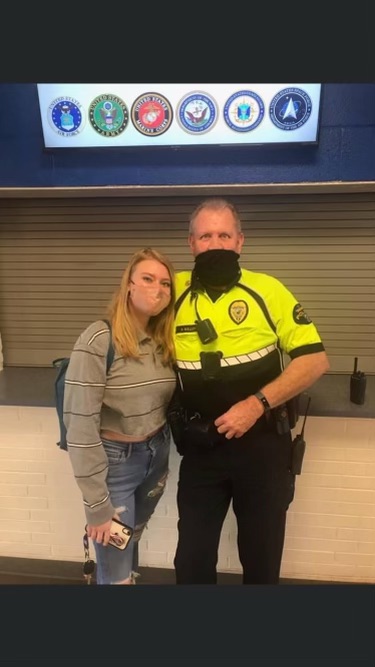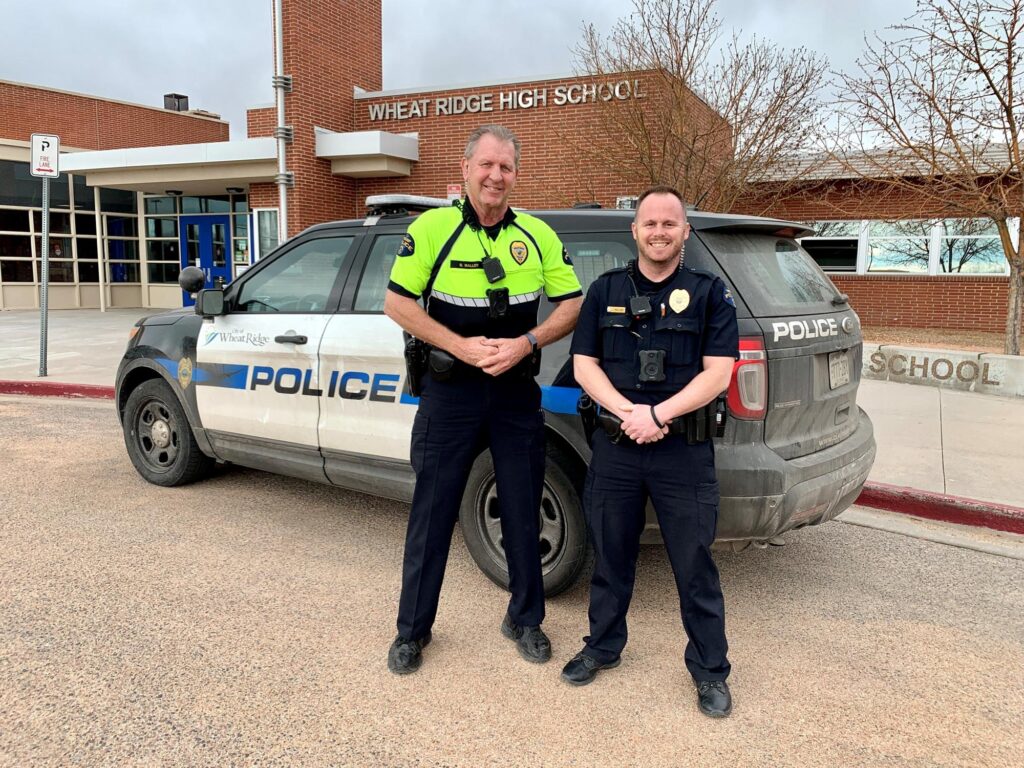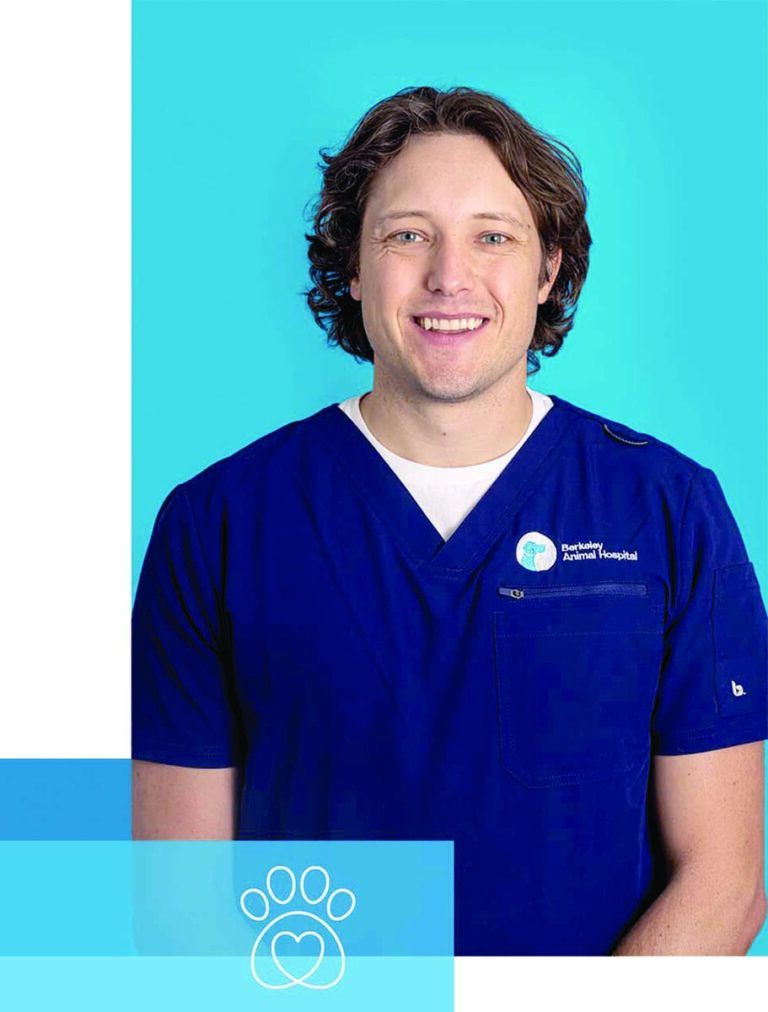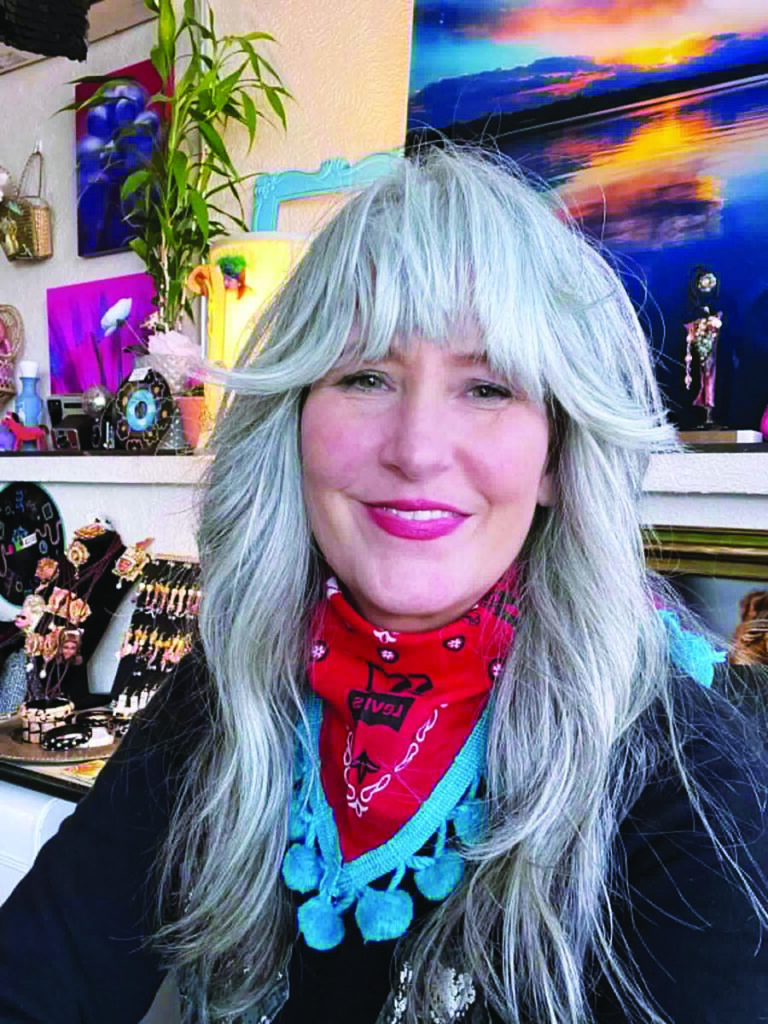After more than four decades of serving the local community as a police officer, Barry Malloy is stepping away from the Wheat Ridge Police Department; and from what was arguably his favorite era of his service: the safety resource officer role (SRO) at Wheat Ridge High School, where he arrived in 2006.
He admitted joining the force wasn’t his first career choice. Growing up, he wanted to be a high school English teacher and football coach, but didn’t want to leave the metro area. He could have become a teacher somewhere deeper into the Front Range, but his family was here; his friends were here; his life was here.
So he joined the Arvada Police Department in 1981, where he stayed until joining WRPD in 2004. But coming from a family of law enforcement, the idea was always in the back of his mind, he said.
“Finding a teaching job in the metro area was tough,” Malloy said. “So I thought, ‘Well it worked out for my family.’”
Now, lots of pride has grown from his years of service. And after 25 years patrolling streets, Malloy jumped at the opportunity to serve as an SRO for WRHS. He felt it was a safer environment compared to most police officers in action, and one that made his profession easier on those that loved him and worried about him.
Plus, he always loved kids, and knew he would thrive in those hallways. Being at WRHS was like having his own very small but very compact city, he said, and having the opportunity to teach the youth about police officers — and be a good example of one — was very important to him.
“I don’t think there’s a position in law enforcement that epitomizes problem-oriented, community-oriented and relationship-based policing more so than being a safety resource officer,” he said. “You are the police department, and I enjoyed that.”
But it wasn’t all discipline; in fact, far from it. Malloy greatly enjoyed getting into classrooms and working with the students. He didn’t make them call him ‘Officer Barry’ or ‘Officer Malloy’ (at least not after a while), and wanted to build a really positive relationship between youth and police officers.
There are those he saw grow up from sixth grade to senior year, and he said the community, composed of not only students, but teachers and staff members at WRHS, gave him more than he ever bargained for.
“I absolutely feel that I got more from them than I gave them,” Malloy said. “And I hope I gave them something, but I know it was better for me. I grew so much as a person, as a police officer, as a father and as a partner. It helped me in ways that I deal with so many different things, over the years.”
Wheat Ridge High School mirrors the city of Denver, he said. It is so diverse, both ethnically and economically, and it provides a great example of the way humans grow to coexist. Both the school, and the Wheat Ridge community as a whole, push acceptance on a big scale, he said.
“It’s what life is all about.”
Malloy takes a lot of care, and takes it seriously, to be the first police officer that most students meet in an up-close setting. He knows most people in general will have only a handful of experiences with police, and often those experiences can be unpleasant, leaving bad impressions about cops. But Malloy said police officers — and teenagers for example — are not so different, at least in how people may perceive them, and both deserve a fair chance.
“It takes one teenager to make a knucklehead decision, one cop to make a stupid decision, and we’re going to stand out like a sore thumb,” he said. “The vast majority of those kids are good, solid young people. And I try to make that same correlation with police officers as well. If we have that in common, we can find other things in common.”
Since he joined the school, he said nearly every experience with the students has been positive (with a few exceptions), and Malloy said he has former students, now adults, that are still friends of his.
It has meant a lot to him to try to make a difference and be a positive influence on so many lives. That love and admiration he carries is reciprocated as well.
“Officer Malloy was by far the best SRO I ever worked with,” said Josh Cooley, WRHS principal. “He was so popular with students and staff because everyone knew that he cared deeply about our school and community.”
Though not everyone is thrilled with the idea of armed officers in public schools. In June 2020, The Denver Board of Education unanimously voted to reduce the number of police officers assigned to schools by 25 percent by the end of the calendar year, and to end its partnership with the Denver Police Department by the end of 2021’s school year, according to a 2020 report by The Pew Charitable Trusts.
Malloy knows of the systematic problems married to these debates, and encourages more conversations and highlighting positive examples. There needs to be the right officer-school connection. He added the officer needs to be engaged with the community and look to build that relationship with true intentions.
He says when an officer takes ownership of the school, and the school takes ownership of that officer, then the school, and therefore the community itself, sees those positive interactions at a much higher rate. Let the students see the human beyond the badge; and for the officer: be visible in a human way.
It’s not easy for him to walk away, but he’s proud to remain a Farmer for life.
“I can’t tell you how many kids I had look at me and say, ‘I didn’t like cops when I first met them. It took me a while to get to you, but you’re alright.’ That was really cool, probably the best part of the job,” Malloy said. “Go to a school that has a successful SRO program, like WRHS, pretty much like anywhere in Jefferson County. And see exactly what those officers do, and how they do it. They’re going to like what they see, absolutely.”







